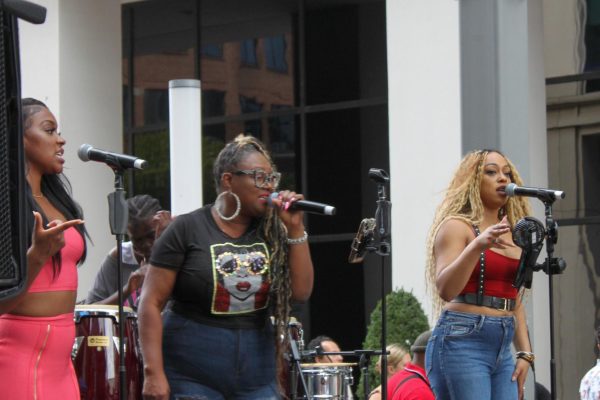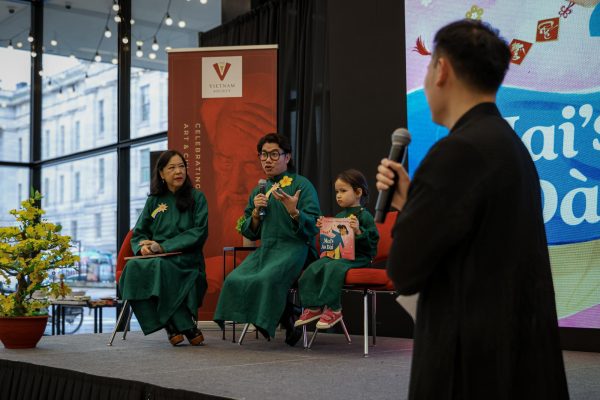Opinion ||: Making America Great Again: Moving Past Religious Discrimination
The United States is a nation of immigrants, yet racism and xenophobia permeate throughout society. Most people have a strong reluctance to acknowledge discrimination and even if they do, it is done in such a roundabout manner that not only illustrates ignorance, but also shows the sensitivity of society towards issues of inequality.
The ongoing debate over the Syrian refugee crisis highlights the extent of the discrimination towards Muslims. The process for a Syrian refugee to be resettled in the U.S. is already one of the most rigorous systems in the world: refugees must go through an intense series of complicated background checks, and it can take up to two years to actually be accepted.
Yet despite this complicated system, the House of Representatives passed a bill called the SAFE Act on November 19, just two days after it was introduced. This bill would have required three high-ranking officials, including the FBI director to sign off on each individual refugee. The senate vetoed the bill on January 20.
Over the past four years, the U.S. has only taken in 2,000 Syrian refugees, and while the Obama administration has plans to accept a further 10,000, this number pales in comparison to the 57,000 Syrians Germany has accepted.
Following the Paris attacks, paranoia over accepting Syrian refugees has only heightened, with 26 GOP state governors and two democrats refusing to accept Syrian refugees outright, even though state officials cannot stop refugees moving to their states after arriving in the U.S. Presidential hopefuls like New Jersey Gov. Chris Christie went as far as to say that he would refuse to admit toddlers; Texas Sen. Ted Cruz and Florida Gov. Jeb Bush have suggested only accepting Christian refugees.
While the decision to admit refugees into a country is always a double-edged sword, basing that decision on the fear of terrorist attacks is incredibly unfair and counterproductive. Politicizing it does not help either. Just because a group of people who call themselves Muslims have launched terror campaigns, does not mean that all Muslims should come under scrutiny for being a terrorist. In fact, there have been no foreign terrorist attacks in the U.S. since 9/11, compared to 26 domestic terrorist attacks, perpetrated by homegrown terrorists.
The anti Muslim rhetoric is not only directed at Syrian refugees, as hate crimes against Muslims have become five times more common now than before 9/11. Recently two teenagers, aged 14 and 15, attacked a Muslim man in New York when he was walking his nine-year-old niece from school. They accused him of being a member of ISIS, but the Bangladesh native did not even know who the terrorist group was. The young ages of these attackers show the pervasiveness of this kind of religious discrimination.
The discrimination of Muslims stems from ignorance and fear that is further catalyzed by the media and politics. How, in this day and age, can there still be so much Islamophobia that goes on unacknowledged? How, with so many facts proving otherwise, can people in positions of power still spout such ill-informed opinions? And how, when you live in a country with freedom of speech, can the conversation about discrimination be so painfully narrow?
Much of the discourse surrounding issues of race is dominated by stereotypes that have been perpetuated by the media for years. The “War On Terror” carried out by the U.S. government after the 9/11 attacks and the media’s subsequent demonization of Islam still casts its shadow over the country today. The Syrian refugees seeking safety and shelter in the U.S., as well as all Muslims, are collectively labeled “terrorists” and considered a threat to the country. The hypocrisy that permeates throughout dominant ideology shows itself most clearly when huge debates crop up about whether to label white U.S. males who commit mass shootings as terrorists, as in the case of the Planned Parenthood shooting last November.
It does not help to generalize about entire groups of people. This country has long prided itself on its diversity and tolerance, yet the loudest voices we hear today scream discrimination. By citing claims of inferior intellect and lack of civilization, European settlers justified their acts of colonization and enslavement of people in African countries, as well as other territories throughout the world. They created the idea of race as a tool of oppression and proclaimed the superiority of Christianity over other religions. Today the phantom of these claims remains and has evolved into stereotypes that remain ingrained in society. This is the 21st century, and as global citizens, we must move past that.
Actions need to be taken to fight discrimination, and schools, parents and communities need to work together and participate in healthy dialogue about discrimination and xenophobia. In his final State of the Union address, President Obama said: “This isn’t a matter of political correctness. It’s a matter of understanding what makes us strong.”
What makes America strong is the tolerance that most people have for each other and the open friendliness that I have seen demonstrated towards me, despite the fact that I am from a Muslim country, Malaysia.
Succumbing to the discrimination that has filled the airwaves for the past few years is only going to tarnish the image of the U.S. It will not, as Donald Trump thinks, “make America great again.” So instead, stop disguising the refusal to discuss these issues as “political correctness.” Embrace the pioneering, adventurous attitude that America credits itself with and stop tiptoeing around institutionalized racism and discrimination. Then, and only then, can anyone claim to be “making America great again.”











